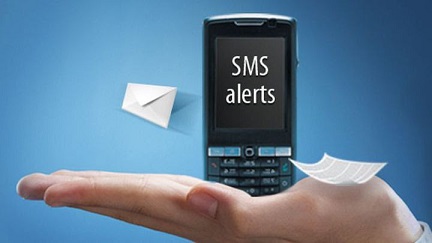
Bank alerts are short notifications or messages banks send to their customers to inform them whenever there is a transaction on their bank accounts. Basically, there are two types of bank alert, namely: SMS alert and email alert.
The SMS alert is a short message sent to your mobile number to notify you when a transaction occurs in your account. On the other hand, such notification could be via a message from the bank to your email – Email alert.
Benefits of Bank Alert
A bank alert allows you monitor and control transactions on your accounts.
It also allows you to detect unauthorized or fraudulent transaction on your account immediately it occurs. Some banks send alert to customers before the transaction is consummated. This is to allow the customer to notify the bank about the legality or otherwise of the transaction and hence the bank can allow or otherwise, abort it.
Some banks allow you to sign up for alerts that notify you when certain transactions are posted. One of the most common and useful of these is the direct deposit alert, which will let you know as soon as your salary is paid into your account. Some banks can send daily alerts telling you which cheques cleared in your account the previous day. Your bank might also offer alerts whenever any deposits, withdrawals, credits or debits are processed.
Alert also helps you avoid overdrawing your account, as you can receive alerts when your balance reaches a pre-determined limit.
How to register for a bank alert
It is mandatory but not compulsory for every bank customer to register for alerts.
According to the April 2017 edition of the Central Bank of Nigeria (CBN) guide to bank charges: “Where a customer opts not to receive SMS alert, the customer should issue an indemnity (for losses that may arise as a result) to the bank.”
How to register for a Bank Alert
Option 1: During account opening process. The account opening form contains segment on alert options. The would-be customer is expected to indicate his/her alert option. This could be E-mail or SMS alert. You would indicate your mobile Phone number where you want the message to be delivered to and an email address if you have one.
Option 2: The customer visits the bank and obtains an alert registration form. The customer completes the form by indicating his/her alert preference as well as the mobile Phone number and/or email address where the alert would be delivered to.
Cost of Alerts
Email alerts are free while SMS Alerts attract charges depending on what you are being alerted for. The CBN Guide to bank charges limits SMS alert charge to N4 per SMS. The CBN however restricts this charge to customer induced transactions. “Fees on alerts are restricted to only customer-induced transactions. All associated notifications relating to a particular transaction should be consolidated into a single SMS alert,” the CBN said.
This means banks are not allowed to charge for SMS for birthday wishes, product alerts, information about a bank promo, and alert on updating of account and statement of account.
END

Be the first to comment